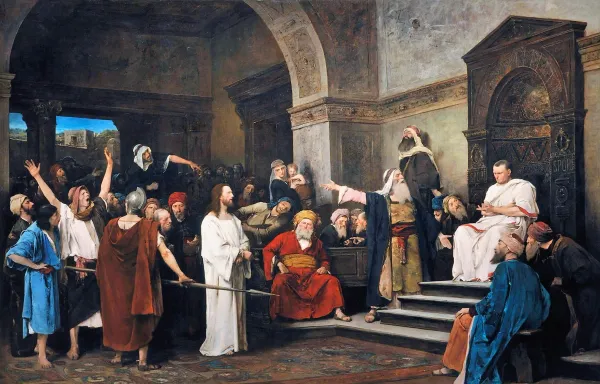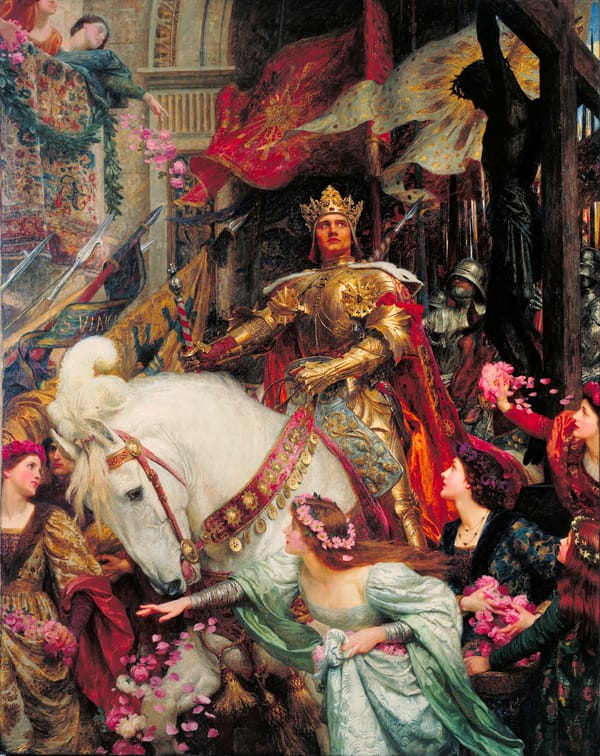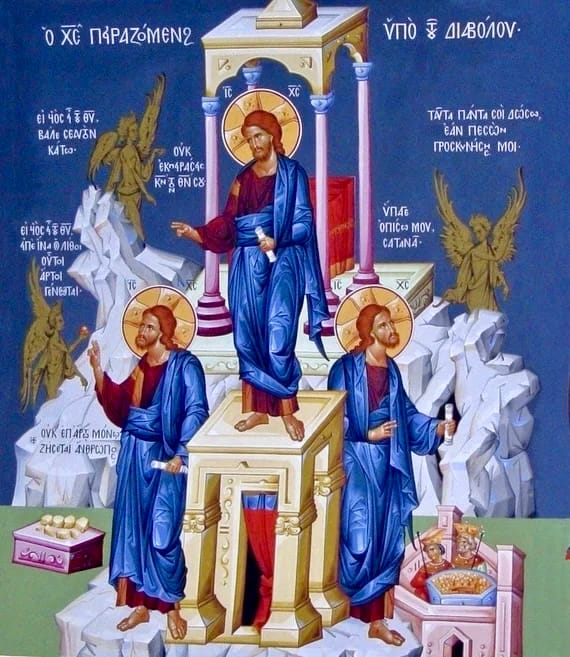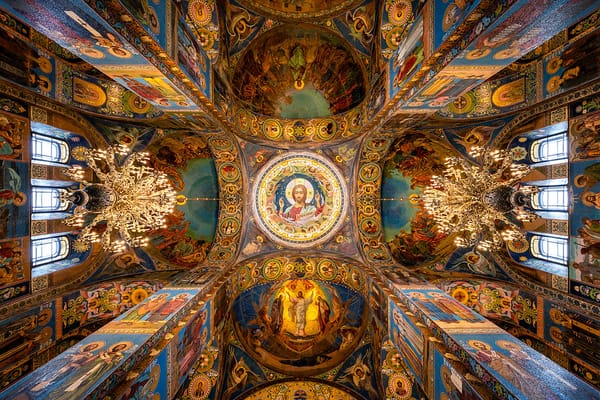Profane Duration and Sacred Time
Religious man lives in two kinds of time, of which the more important, sacred time, appears under the paradoxical aspect of a circular time – a sort of eternal mythical present periodically reintegrated by means of rites.
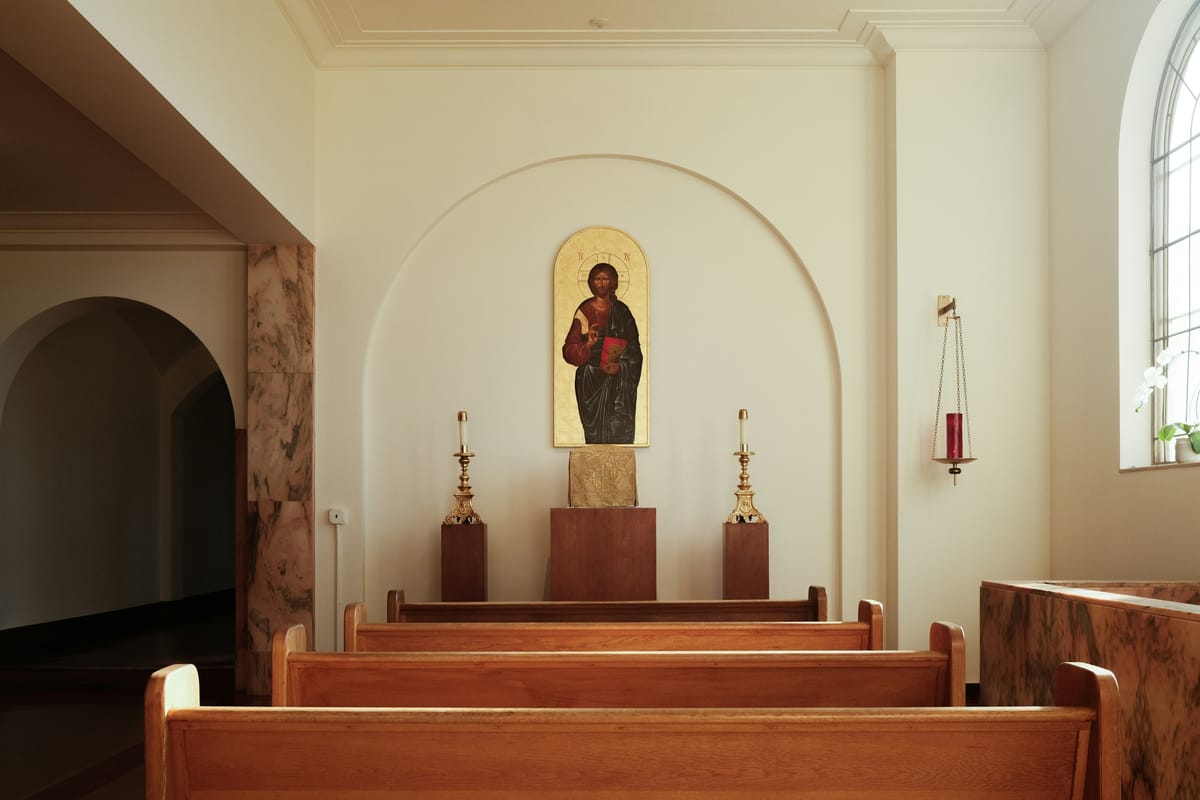
Below is a passage from the second chapter of Mircea Eliade's invaluable The Sacred and the Profane (1968). The book is an introduction (or perhaps a bit more) to the concept of the sacred. Unlike more strictly-psychological treatments of the subject, Eliade's approach entails, according to him, "the sacred in its entirety" – not just the "irrational" aspects of religion.
In these paragraphs, he delineates "sacred time" as a "primordial mythical time made present."
(Later, he acknowledges the fundamental difference between Christianity versus other religions in this regard, as the Christian liturgy unfolds in a historical, and not strictly mythical, time in its affirmation of the historicity of the person of Christ. But this nuance is secondary to his treatment here.)
For religious man time too, like space, is neither homogeneous nor continuous. On the one hand there are the intervals of a sacred time, the time of festivals (by far the greater part of which are periodical); on the other there is profane time, ordinary temporal duration, in which acts without religious meaning have their setting. Between these two kinds of time there is, of course, solution of continuity; but by means of rites religious man can pass without danger from ordinary temporal duration to sacred time.
One essential difference between these two qualities of time strikes us immediately: by its very nature sacred time is reversible in the sense that, properly speaking, it is a primordial mythical time made present. Every religious festival, any liturgical time, represents the reactualization of a sacred event that took place in a mythical past, "in the beginning." Religious participation in a festival implies emerging from ordinary temporal duration and reintegration of the mythical time reactualized by the festival itself. Hence sacred time is indefinitely recoverable, indefinitely repeatable. From one point of view it could be said that it does not "pass," that it does not constitute an irreversible duration. It is an ontological, Parmenidean time; it always remains equal to itself, it neither changes nor is exhausted.
With each periodical festival, the participants find the same sacred time the same that had been manifested in the festival of the previous year or in the festival of a century earlier; it is the time that was created and sanctified by the gods at the period of their gesta, of which the festival is precisely a reactualization. In other words the participants in the festival meet in it the first appearance of sacred time, as it appeared ab origine, in illo tempore. For the sacred time in which the festival runs its course did not exist before the divine gesta that the festival commemorates. By creating the various realities that today constitute the world, the gods also founded sacred time, for the time contemporary with a creation was necessarily sanctified by the presence and activity of the gods.
Hence religious man lives in two kinds of time, of which the more important, sacred time, appears under the paradoxical aspect of a circular time, reversible and recoverable, a sort of eternal mythical present that is periodically reintegrated by means of rites. This attitude in regard to time suffices to distinguish religious from nonreligious man; the former refuses to live solely in what, in modern terms, is called the historical present; he attempts to regain a sacred time that, from one point of view, can be homologized to eternity.
What time is for the nonreligious man of modern societies would be more difficult to put into a few words. We do not intend to discuss the modern philosophies of time nor the concepts that modern science uses in its own investigations. Our aim is to compare not systems or philosophies but existential attitudes and behaviors. Now, what it is possible to observe in respect to a non- religious man is that he too experiences a certain discontinuity and heterogeneity of time. For him too there is the comparatively monotonous time of his work, and the time of celebrations and spectacles in short, "festal time." He too lives in varying temporal rhythms and is aware of times of different intensities; when he is listen- ing to the kind of music that he likes or, being in love, waits for or meets his sweetheart, he obviously experiences a different temporal rhythm from that which he experiences when he is working or bored.
But, in comparison with religious man, there is an essential difference. The latter experiences intervals of time that are "sacred," that have no part in the temporal duration that precedes and follows them, that have a wholly different structure and origin, for they are of a primordial time, sanctified by the gods and capable of being made present by the festival. This transhuman quality of liturgical time is inaccessible to a nonreligious man. This is as much as to say that, for him, time can present neither break nor mystery; for him, time constitutes man's deepest existential dimension; it is linked to his own life, hence it has a beginning and an end, which is death, the annihilation of his life. However many the temporal rhythms that he experiences, however great their differences in intensity, nonreligious man knows that they always represent a human experience, in which there is no room for any divine presence.


